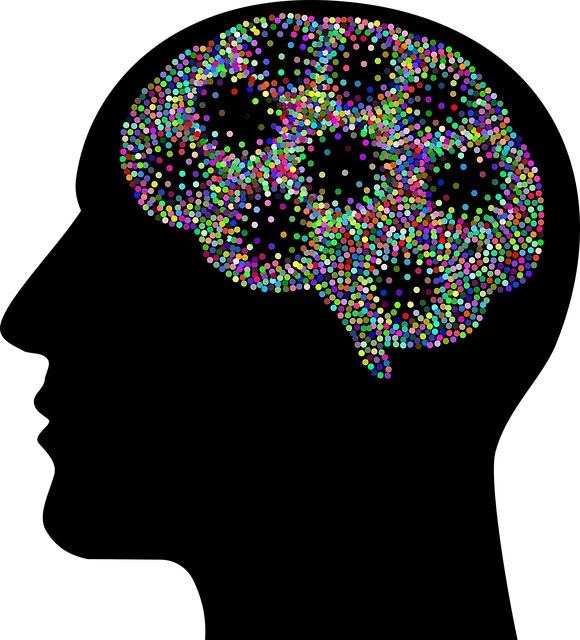Mental illness diagnosis at Castle Rock Kaiser Permanente faces challenges due to stigma, misinformation, comorbidities, and complex presentations. Their comprehensive mental health services tackle these issues with integrated care models that include advanced evaluation methods and holistic strategies like Inner Strength Development and Self-Care Practices. These approaches aim to improve diagnostic accuracy, enhance patient outcomes, and support individuals in their mental health journeys, especially for conditions such as GAD and bipolar disorder.
Mental illness diagnosis accuracy is a critical aspect of healthcare that demands continuous improvement. Despite advancements in medicine, diagnosing conditions like depression, anxiety, or schizophrenia remains challenging due to individual variations and complex presentations. This article explores the current challenges in mental health assessment, focusing on gaps within traditional methods and their patient care implications. We present Castle Rock Kaiser Permanente’s innovative approach to enhancing diagnosis accuracy through tailored initiatives and resources, offering a glimpse into the future of mental health services.
- Understanding the Current Challenges in Mental Illness Diagnosis
- – Discuss the complexities and nuances of diagnosing mental health conditions
- – Highlight gaps in current assessment methods and their impact on patient care
Understanding the Current Challenges in Mental Illness Diagnosis

Mental illness diagnosis is a complex process, often shrouded by stigma and misinformation, which hinders accurate assessment and timely treatment. The current challenges lie in the multifaceted nature of mental health conditions, where symptoms can be subtle or overlap with other disorders, making differential diagnosis a daunting task for professionals. Castle Rock Kaiser Permanente’s mental health services recognize these hurdles and strive to improve diagnostic accuracy through comprehensive approaches.
One significant challenge is the impact of social and cultural factors on presentation of mental illness. Individuals from diverse backgrounds may express symptoms differently due to varied coping mechanisms and perceptions of distress, adding another layer of complexity to diagnosis. Additionally, comorbid conditions are common, further complicating treatment planning and requiring integrated care models like those offered by Castle Rock Kaiser Permanente. Efforts to enhance self-esteem improvement, stress reduction methods, and mood management techniques play a pivotal role in both accurate diagnosis and patient-centric care.
– Discuss the complexities and nuances of diagnosing mental health conditions

Diagnosing mental health conditions is a multifaceted challenge due to their intricate nature and individual presentations. Each person’s experience with anxiety, depression, or psychosis is unique, making it difficult for healthcare providers to pinpoint precise causes and symptoms. The complexity increases when considering comorbidities, where multiple disorders coexist, further complicating accurate assessment. Castle Rock Kaiser Permanente mental health services acknowledge these nuances and strive to improve diagnosis accuracy by integrating advanced evaluation methods with comprehensive patient care.
Efforts to enhance diagnostic precision involve a holistic approach that includes fostering Inner Strength Development through therapeutic interventions, leveraging Public Awareness Campaigns Development to educate both patients and caregivers, and promoting Self-Care Practices as essential components of treatment plans. By embracing these strategies, mental health professionals at Castle Rock Kaiser Permanente aim to provide more tailored support, ultimately improving patient outcomes and the overall well-being of individuals navigating their mental health journeys.
– Highlight gaps in current assessment methods and their impact on patient care

The current assessment methods for mental illness often fall short when it comes to accurately reflecting a patient’s complex psychological landscape. Traditional diagnostic tools may struggle to capture subtle nuances, leading to misdiagnoses or undiagnosed conditions. This is particularly evident in managing mood disorders and anxiety-related issues, where symptoms can be diverse and interconnected. For instance, patients seeking Castle Rock Kaiser Permanente mental health services might present with a range of experiences, from intense emotional swings to persistent worry and panic attacks. However, conventional assessments may not adequately address the interrelationships between these symptoms, hindering effective treatment planning.
Gaps in assessment methods can significantly impact patient care, resulting in suboptimal outcomes. Inadequate diagnosis may lead to inappropriate medication choices or therapies that do not address the root causes. This is especially critical in conditions like generalized anxiety disorder (GAD) and bipolar disorder, where emotional regulation and mood management are key treatment goals. Enhancing diagnostic accuracy can ensure patients receive tailored interventions, such as cognitive-behavioral therapy for anxiety relief or specialized medications to stabilize moods, ultimately fostering better mental health outcomes.
Mental illness diagnosis accuracy is a complex issue, but by understanding the current challenges and gaps in assessment methods, such as those faced by Castle Rock Kaiser Permanente mental health services, we can make significant strides towards improving patient care. Implementing innovative strategies and utilizing comprehensive tools can enhance diagnostic precision, ultimately fostering more effective treatment plans and improved outcomes for individuals navigating their mental health journeys.






